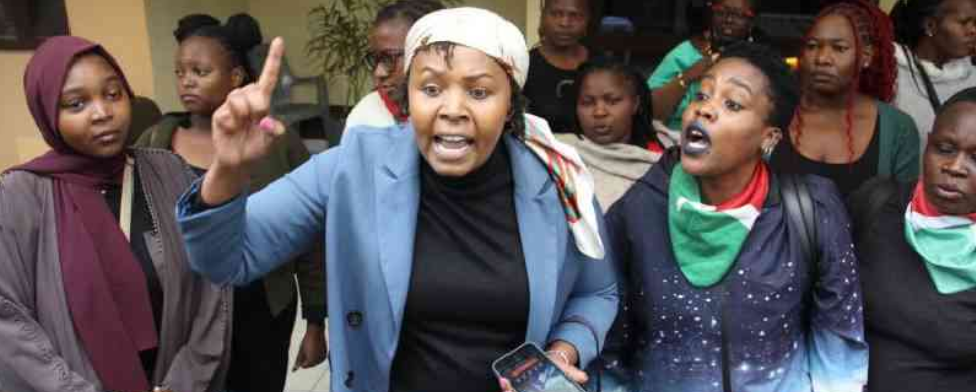Uhuru and Raila, there is nothing to govern in a divided Kenya
- Irungu Houghton

- Oct 22, 2017
- 3 min read
First published Sunday Standard, October 22, 2017. Kindly reproduced here with permission from the Standard Group
October 26 looms. It looms like a boil on our national and personal conscience. Having run divisive campaigns for the last ninety day campaigns, our leaders are unsure how to handle it. NASA chooses to ignore it. JP demands it be lanced whatever the consequences. Beneath these unequivocal positions lies the common fear that neither party’s position carries the entire nation with it. We are now, officially a divided society.
Hardliners dismissed the growing call for dialogue on the management of the Presidential Elections this week. Some argued that the best form of dialogue was the election itself. When in doubt, have a monologue was what I thought of this argument. Others polished up the unconstitutional two-state succession option. Others still, took confidence in their control of security forces.
JP missed the opportunity for consensus building last week. We approach the Thursday elections with a fractured IEBC, serious administrative challenges and only one significant player willing to take to the pitch. For the rest of us, we remain unsure whether it is worth buying tickets to a football match when only one team wishes to play. The country is deeply divided on how to conclude this electoral season.
As Obama tells us, skillfully governing a country after waging divisive politics is hard. A casual review of Bosnian, Congolese or Iraqi leaders’ biographies will also tell you this. Prolonged adversity produces leadership conservatism, intolerance and over-dependency on counter violence strategies. The rest is just tragedy economics. Two police officers for every polling station, one tear gas canister for every five protesters and five body-bags for every demonstration.
Faced with perpetual legitimacy challenges, it takes an incredible leader to continue to invest in actions that expand their legitimacy. Most remain in repeat mode and stop caring what impact they leave on the people who disagree with them. Inevitably, they come to rely on suppressing than transforming dissent. This is why, the next five days may be the defining moment for the next five years.
Whispers of this can be heard already. Did you know Daniel arap Moi ruled the country with less than 20% of the electorate in the eighties? Or did you know George W. Bush became President in 2000 without the popular vote? These arguments normalize mediocre leadership and must be challenged. Should we celebrate also slavery, colonialism and genocidal regimes which also functioned without popular mandates? The real challenge for all leaders in divided societies, Uhuru Kenyatta and Raila Odinga included, is how will they leave behind a nationally cohesive country after they have left our political stage.
The answer lies less in what to do with the egos and interests of our political class. I am convinced that our country’s resources are not big enough to satisfy their appetite for more. Before devolution, calls for more cabinet positions or proportional representation may have been useful inquiries. With 47 county administrations, this argument is less convincing. Pro-actively deepening our national values in all our spaces is where our attention needs to turn.
We must welcome and expand the voices of religious, civic and political leaders who called for consensus-building, the artists engaged in #TuliaTubonge flash mobs, the few police officers who have exercised restraint, the protesters who risk their lives to protest the loss of others’ lives and the community peace-workers who rose to stand between those calling for violence. Leadership is defined less in terms of the position you occupy but more by the direction you are leading others towards.
Ultimately, it is the IEBC that holds the key to what happens next. A day is a long time in politics it is said. Last week, this common phrase got shortened to six hours. There is still time for the IEBC to seek an advisory from the Supreme Court on whether the constitutional threshold of Article 81 can still be met given the current political and administrative conditions. There is still time for Kenyatta like Odinga to meet with our chief referee and then for all the parties to meet.
Should they not, we must accept that the freedom to vote or not to vote is also anchored in our constitution. All JP and NASA leaders and supporters must embrace Kenyatta and Odinga statement that this right shall be protected on October 26. Each of us must vote or not according to our conscience. Choose powerfully.





Comments